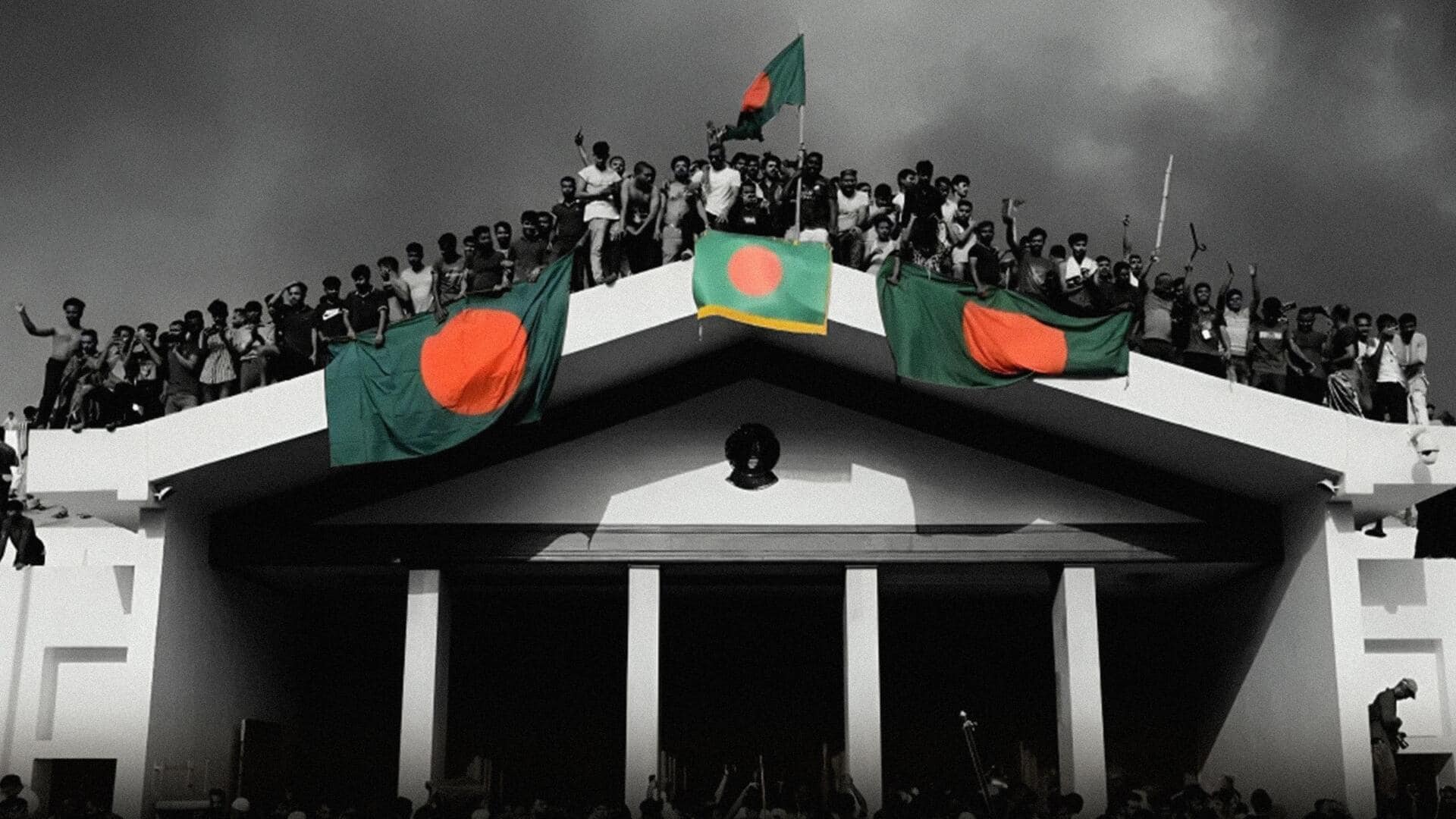
After Hasina's resignation, interim government formation in Bangladesh likely today
What's the story
The Bangladeshi parliament is expected to be dissolved on Tuesday—a day after Sheikh Hasina's resignation and departure from the country.
Amid widespread student protests, the military has taken control of the country.
On Monday night, President Mohammed Shahabuddin chaired a critical meeting to discuss establishing a military-backed caretaker government.
Attendees included Army Chief General Waker-Uz-Zaman, the heads of the navy and airforce, and top leaders from several opposition parties, including the Bangladesh Nationalist Party and Jamaat-e-Islami.
Context
Why does this story matter?
The student protest—ongoing since July—began with calls to abolish civil service job quotas but has since evolved into a broader anti-government movement.
The protests in Bangladesh are rooted in a contentious quota system that allocates up to 30% of government jobs to the relatives of veterans from Bangladesh's 1971 independence war.
Protesters argue that this system is discriminatory and favors former PM Hasina's Awami League party, calling for a merit-based system instead.
Reaches India
Hasina flees Bangladesh
On Monday, Hasina—the daughter of Bangladesh's founding father Sheikh Mujibur Rahman—was given a 45-minute ultimatum to step down as Prime Minister.
After resigning, Hasina—who began her fifth term earlier this year—departed Dhaka in a military aircraft for India, accompanied by her younger sister, Sheikh Rehana.
She met National Security Advisor Ajit Doval after landing at Hindon Air Force Base in Ghaziabad.
According to the NDTV, Hasina plans to seek political asylum in London.
Ahead of government formation
Army Chief to meet student protest leaders
Ahead of the government formation, Army Chief General Waker-Uz-Zaman is set to meet with student protest leaders.
Reports said, the student leaders are advocating for an interim government led by Nobel Peace laureate Muhammad Yunus as chief advisor.
On Monday, in a national address, General Waker announced Hasina's resignation and the Army's intention to form an interim government.
"The country has endured much...the economy has suffered...many lives have been lost. It is time to end the violence," he had said.
Global reaction
International response
The political unrest in Bangladesh has drawn international attention.
Western powers, including the United States, have urged all parties to "refrain from further violence."
United Nations Secretary-General Antonio Guterres has called for a "peaceful, orderly and democratic transition."
Separately, Prime Minister Narendra Modi has been briefed on the situation by External Affairs Minister S Jaishankar.